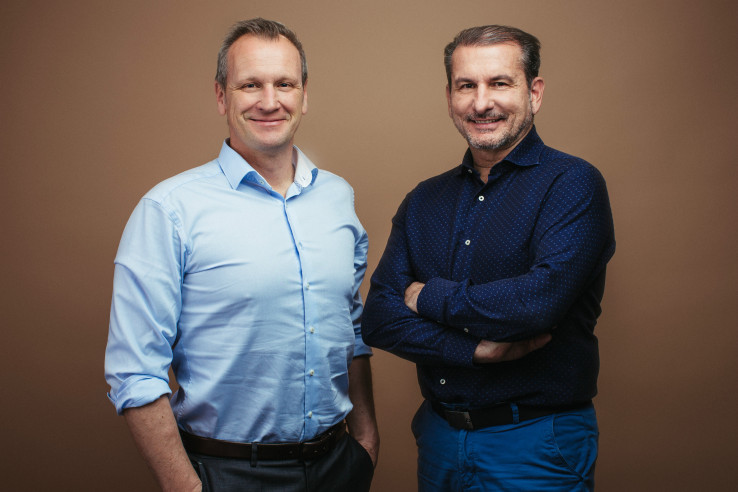
SolarisBank, the Berlin-based “banking platform” co-founded by fintech company builder Finleap, appears to be on quite a roll.
The company, which now claims nearly 60 corporate clients who offer various financial services powered by solarisBank, has closed €56.6 million in Series B funding in a round that includes a number of new strategic and financial investors.
Notably, they include Spanish banking giant BBVA — which only yesterday upped its investment in the U.K. challenger bank Atom — Visa, Lakestar, and ABN AMRO’s Digital Impact Fund (DIF). In addition, previous investors Arvato Financial Solutions, and SBI Group have increased their commitment, while I understand the Series B includes a small amount of secondary funding as a number of existing shareholders exit.
I’ve also learned that solarisBank’s Series B keeps Finleap as the leading shareholder, holding about 30 per cent. BBVA is now the second largest investor with all other investors below 10 per cent (incidentally, the co-founders of solarisBank, Finleap not included, are minority shareholders).
Founded in March 2016, solarisBank offers a Banking-as-a-Platform and holds a full banking license, meaning it provides both the technology and the banking rails needed to offer various banking and financial products, including the required regulatory mandate. In this sense, it’s a B2B2C play, letting other fintech startups and companies, or any corporate wanting to get into financial services, access the tools to do so, and, arguably, at a much lower cost and risk profile than going it alone and building from scratch.
Others in the BaaS space include the U.K.’s Railsbank directly, and to a lesser extent something liker challenger bank Starling which, aside from its own consumer current account, is building quite a compelling payment product, including serving other fintech startups.
To that end, solarisBank says it is active in seven countries, and expects to increase its customer base to over 100 corporate clients by the end of the year. The range of products the solarisBank platform can power is quite far reaching, having been designed as a series of modules. They broadly fall into three categories.
“Digital banking & cards,” which clients can use as a backbone to build retail or SME banking offerings (Penta is one such as example). “We have also gained interest from traditional banks to build a new digital subsidiary with us or retail or online companies, which would like to offer their customers an own bank account or payment card,” solarisBank CEO Dr. Roland Folz tells me. That has echoes of Amazon’s reported plans to offer a branded bank account.
Another is “Payments and E-Money,” which enables companies to offer gift cards, vouchers, P2P payments or cross-border payments via solarisBank’s fully digital Payment APIs. As an example, fashioncheque is offering a gift card that can be used to purchase fashion at various retailers.
Lastly, “Lending & Deposits” lets companies integrate consumer loans or SME loans directly into their own offerings. This is being used by online platforms, such as marketplaces for used cars as well as comparison portals, to introduce a credit product under their own brand (e.g. solarisBank’s recent partnership with smava).


